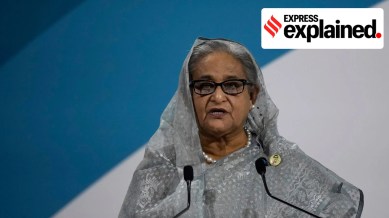Why India-Bangladesh extradition treaty does not imply that New Delhi must hand over Sheikh Hasina
India also has the option of refusing Hasina’s extradition on the ground that the accusations made against her are not “in good faith in the interests of justice”, although this may further strain ties between New Delhi and Dhaka.

India and Bangladesh signed an extradition treaty in 2013, in the context of several Indian and Bangladesh fugitives hiding and operating out of the other country. But the mere existence of the treaty does not mean that New Delhi has to hand over Sheikh Hasina to Dhaka.
According to the treaty, extradition may be refused if the offence is of “political nature”, although the list of offences which cannot be deemed “political” is rather long. Some of the offences under which Hasina has been booked — including murder, enforced disappearance and torture — are excluded from the definition of political crimes in the treaty.
The treaty was amended in 2016 to simplify and hasten the extradition process.
The amendment to Article 10 (3) of the treaty did away with the requirement for the country seeking extradition to provide evidence of the offence committed.
Now, only an arrest warrant issued by a competent court of that country is required to process an extradition — Hasina has multiple such warrants against her in Bangladesh.
That said, the treaty still provides other grounds for refusal of extradition requests. Article 8 lists multiple grounds for refusal, including cases in which an accusation has not been “made in good faith in the interests of justice” or military offences which are not “an offence under the general criminal law”.
So, India has the option of refusing Hasina’s extradition on the ground that the accusations made against her are not “in good faith in the interests of justice”, although this may further strain ties between New Delhi and Dhaka.
At the end of the day, regardless of the minutiae of the extradition treaty, the decision to grant Dhaka’s extradition request will be a political one.
“Do our critical interests lie in handing over Hasina to Bangladesh? They don’t. The legalese of the treaty does not matter,” a former Research and Analysis Wing (R&AW) officer, who has dealt closely with Bangladesh, told The Indian Express earlier.
“There are multiple examples of relations between two countries being healthy despite pending extradition requests,” a former diplomat who served in the region said.
Incidentally, the treaty with Bangladesh allowed India to successfully extradite Anup Chetia, a top United Liberation Front of Assam (ULFA) leader, in 2015.